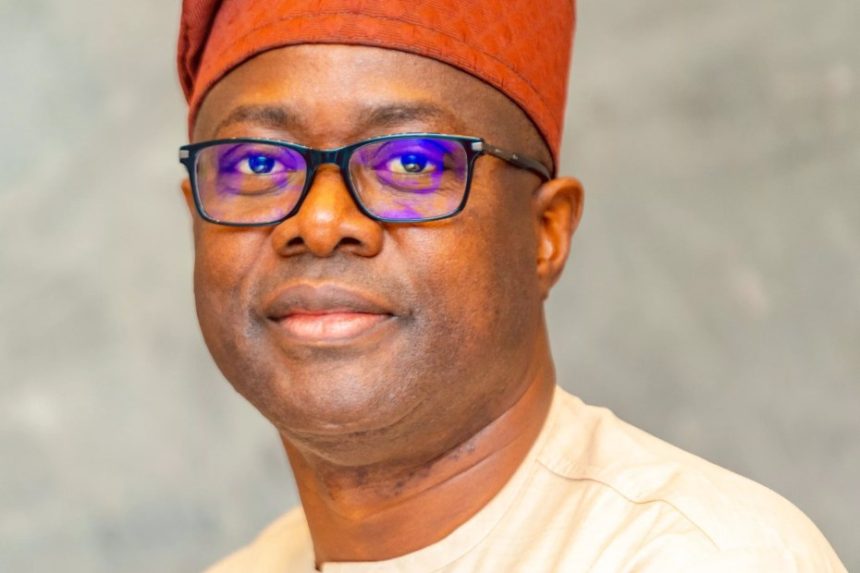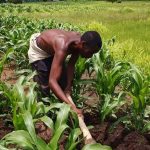Governor Seyi Makinde of Oyo State inaugurated the mechanisation of cassava production and processing at Fashola, near Oyo, in collaboration with the African Agricultural Technology Foundation (AATF). This project aims to streamline cassava processing for farmers across Oyo State and its neighboring regions.
Makinde, represented by the state’s Commissioner for Agriculture and Rural Development, Olasunkanmi Olaleye, commended AATF for their partnership and efforts in bringing this project to fruition. He emphasized that this initiative marks a significant stride in modernizing and revolutionizing the agriculture sector in the state.
The governor highlighted the valuable contributions of AATF in driving innovation and progress in agricultural practices. The project will enhance training in post-harvest management and offer small-scale village processors access to processing services.
The project introduces a new cassava processing machine that utilizes the entire crop without peeling, generating two products: high-quality cassava flour for human consumption and coarser flour as a byproduct for animal feed. Governor Makinde noted the importance of cassava in the Nigerian economy and its role in ensuring food security and sustainable livelihoods. He added that traditional farming methods often limit growth potential, but the introduction of mechanized techniques will increase efficiency, yield, and competitiveness for local farmers.
Governor Makinde urged all stakeholders to support the project, emphasizing that its success relies on collaboration. He called for collective efforts to provide resources and knowledge to farmers, enabling them to adopt new technologies.
Makinde encouraged Nigerian farmers to embrace modern agricultural practices to minimize environmental impact while maximizing benefits for communities. He envisions Oyo State as a model of excellence in agriculture through this new era of innovation.
Dr. Canisius Kanangire, Executive Director of AATF, highlighted the inauguration as a significant milestone in enhancing agricultural productivity. The project has the potential to revolutionize cassava cultivation, harvesting, and processing.
Cassava holds great importance in Nigeria, not only as a staple food crop but also as a source of income and livelihood for millions of smallholder farmers and their families. However, challenges in production, marketing, and post-harvest management have limited its potential.
Kanangire attributed the yield gap in cassava to low-yielding varieties, limited mechanization, and inadequate use of Good Agronomic Practices (GAPs). He mentioned that post-harvest losses are primarily due to inadequate infrastructure, such as storage facilities and transportation, leading to spoilage and damage during transit. Additionally, limited access to modern processing technology hinders value addition and transformation efforts, exacerbating losses.
There is growing interest and investment in modern processing techniques for cassava flour, starch, and other value-added products. The mechanized technologies introduced in this project offer a transformative opportunity to overcome these challenges and unlock the full potential of cassava production and processing. Automating key processes can significantly enhance efficiency, reduce post-harvest losses, and improve cassava product quality.
The Executive Director also emphasized that mechanization would create employment opportunities, particularly benefiting youths and women, and stimulate rural economies. He expressed gratitude to GIZ for their support, Clayuca for machinery assistance, and AgriDrive for driving the mechanisation component of the project.
He also acknowledged the valuable technical support provided by the Nigeria Root Crops Research Institute (NRCRI) and the Nigerian Stored Products Research Institute (NSPRI). The Executive Director urged everyone to work together to seize this opportunity to transform cassava production and processing, unlock new economic opportunities, and build a more prosperous future for cassava farmers and processors across the region.
The Nigeria Stored Products Research Institute’s CEO, Professor Lateef Sanni, stated that the project would improve farmers’ income, reduce post-harvest losses, and create employment. The Minister of Science, Innovation, and Technology, Uche Unaji, represented by his special adviser, Dr. Robert Ngwu, said the project aligned with the ministry’s thoughts and would increase farmers’ production while reducing wastage of manpower.
Other notable speakers included Prof. Garba Sharubutu, executive director of Agricultural Research Council of Nigeria (ARCN), the executive director of National Root Research Institute (NRCRI), Prof. Chiedozie Egesi, chairperson of the Board of Directors at AgriDrive Nigeria Limited, and representatives of the cassava breeders association. They discussed the project’s importance and the challenges faced in manual cassava peeling.





